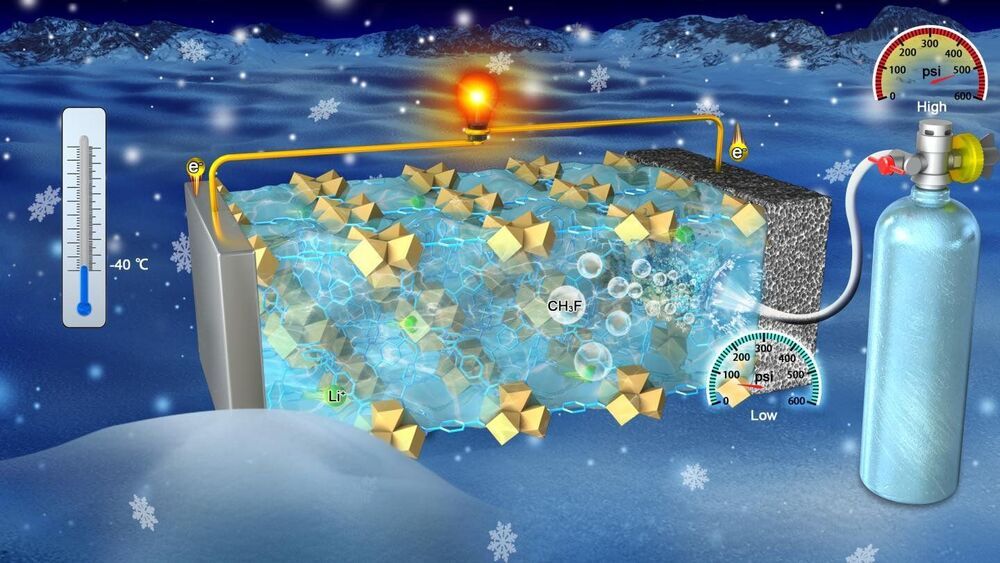A new technology could dramatically improve the safety of lithium-ion batteries that operate with gas electrolytes at ultra-low temperatures. Nanoengineers at the University of California San Diego developed a separator—the part of the battery that serves as a barrier between the anode and cathode—that keeps the gas-based electrolytes in these batteries from vaporizing. This new separator could, in turn, help prevent the buildup of pressure inside the battery that leads to swelling and explosions.
“By trapping gas molecules, this separator can function as a stabilizer for volatile electrolytes,” said Zheng Chen, a professor of nanoengineering at the UC San Diego Jacobs School of Engineering who led the study.
The new separator also boosted battery performance at ultra–low temperatures. Battery cells built with the new separator operated with a high capacity of 500 milliamp-hours per gram at-40 C, whereas those built with a commercial separator exhibited almost no capacity. The battery cells still exhibited high capacity even after sitting unused for two months—a promising sign that the new separator could also prolong shelf life, the researchers said.
